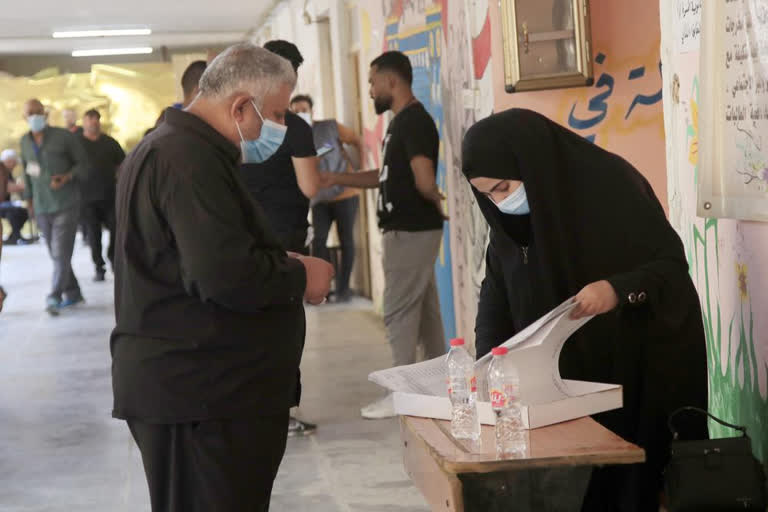Baghdad:Iraqis voted Sunday in parliamentary elections held months ahead of schedule as a concession to a youth-led popular uprising against corruption and mismanagement. But the voting was marked by widespread apathy and a boycott by many of the young activists who thronged the streets of Baghdad and Iraq’s southern provinces in late 2019. Tens of thousands of people took part in the mass protests and were met by security forces firing live ammunition and tear gas. More than 600 people were killed and thousands injured within just a few months.
Although authorities gave in and called the early elections, the death toll and the heavy-handed crackdown - as well as a string of targeted assassinations - prompted many who took part in the protests to later call for a boycott of the vote. Polls closed at 1500 GMT (1800 local time) following 11 hours of voting. Results are expected within the next 24 hours, according to the independent body that oversees Iraq’s election. But negotiations to choose a prime minister tasked with forming a government are expected to drag on for weeks or even months.
The election was the sixth held since the fall of Saddam Hussein after the U.S.-led invasion of Iraq in 2003. Many were skeptical that independent candidates from the protest movement stood a chance against well-entrenched parties and politicians, many of them backed by powerful armed militias. Minutes after polls closed, fireworks organized by Baghdad’s municipality went off in the city’s landmark Tahrir Square, where demonstrators had set up tents for several months starting in October 2019. The protests fizzled out by February of the following year, due to the security crackdown and later, the coronavirus pandemic.
Today, the square stands largely empty. The country faces huge economic and security challenges, and although most Iraqis long for change, few expect it to happen as a result of the elections. Muna Hussein, a 22-year-old cinematic makeup artist, said she boycotted the election because she did not feel there was a safe environment “with uncontrolled weapons everywhere,” a reference to the mainly Shiite militias backed by neighboring Iran.
“In my opinion, it isn’t easy to hold free and fair elections under the current circumstances,” she said. Amir Fadel, a 22-year-old car dealer, disagreed. “I don’t want these same faces and same parties to return,” he said after casting his ballot in Baghdad’s Karradah district.
Iraq’s Prime Minister Mustafa al-Kadhimi, whose chances for a second term will be determined by the results of the election, urged Iraqis to vote in large numbers.“Get out and vote, and change your future,,” said al-Kadhimi, repeating the phrase, “get out” three times after casting his ballot at a school in Baghdad’s heavily fortified Green Zone, home to foreign embassies and government offices.
Also read:Polls open in Iraq's general elections amid tight security
Under Iraq’s laws, the winner of Sunday’s vote gets to choose the country’s next prime minister, but it’s unlikely any of the competing coalitions can secure a clear majority. That will require a lengthy process involving backroom negotiations to select a consensus prime minister and agree on a new coalition government. It took eight months of political wrangling to form a government after the 2018 elections.
